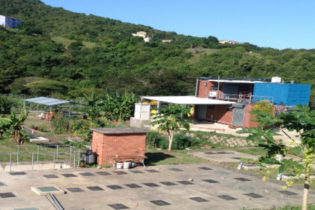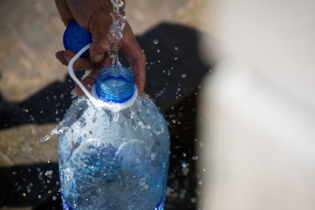A new set of guidelines for sanitation and hygiene in schools aimed at significantly reducing water-related diseases among students was launched at the Education Ministry in Beirut last Thursday. The guide, Water Sanitation and Hygiene in Schools: Guidelines for Lebanon is part of the international WASH programme, which is designed to tackle UN Millennium Development Goals related to disease reduction, education and poverty eradication.
During the launch, director-general of the Education Ministry Fadi Yarak said the ministry will distribute the 136-page guide to all public and private schools in the country to spread awareness on the need for water sanitation. “We will ask schools in the country to implement these guidelines in the coming academic year and we will work on adding the subject of sanitation and hygiene into the academic curriculum,” said Yarak, speaking on behalf of Education Minister Hasan Diab. The guide, which is in English, Arabic and French, addresses the quality of water facilities, hygiene promotion and the means to combat water-related diseases in schools.It was prepared by UNICEF, the Swiss Agency for Development and Cooperation and the Education Ministry. Yarak also said that students should participate as agents of change within their schools and communities “We will work on having an annual test by students, who will check whether the guidelines are implemented,” he added. According to the guide, improved hygiene in schools leads to increased attendance, a reduction in dropout rates and increased economic growth. Thanking UNICEF and the Swiss Agency for Development and Cooperation for their help, Yarak said that the project highlights the importance of water and sanitation in schools for children’s health. An official at the Education Ministry who spoke on condition of anonymity told The Daily Star that the ministry’s health department has separate units across the country that carry out annual sanitation and medical checkups for students.“For instance in Beirut we have two experts that tour the public schools in the city throughout an academic year,” said the official.
Speaking at the ceremony, UNICEF representative in Lebanon Annamaria Laurini said that without sanitation and good hygiene at schools, achieving sustainable development is difficult.“Today around the world some 3 000 children will die because of diarrhea … and what are the leading causes of this killer disease? Dirty water, poor sanitation and inadequate hygiene,” Laurini said.
Diarrhea is a common cause of death in many developing countries and is the second most common cause of death in children under the age of 5 worldwide. According to Laurini, ensuring adequate hygiene in schools should be accompanied by hygiene awareness among the children. “Hygiene awareness needs to focus on explaining the link between behavior and illness,” Laurini added. Ruth Flint, the Swiss ambassador to Lebanon, praised the guide and said that it could be an effective tool to develop national policies and set national standards and guidance for the construction and rehabilitation of school buildings. “We are confident that the guidelines will be a source of empowerment and learning to students, teachers, school administrators, families and the community,” Flint said. The Swiss ambassador also thanked WASH specialist Justine Haag for providing technical support for the development of the manual.
Source: dailystar.com






